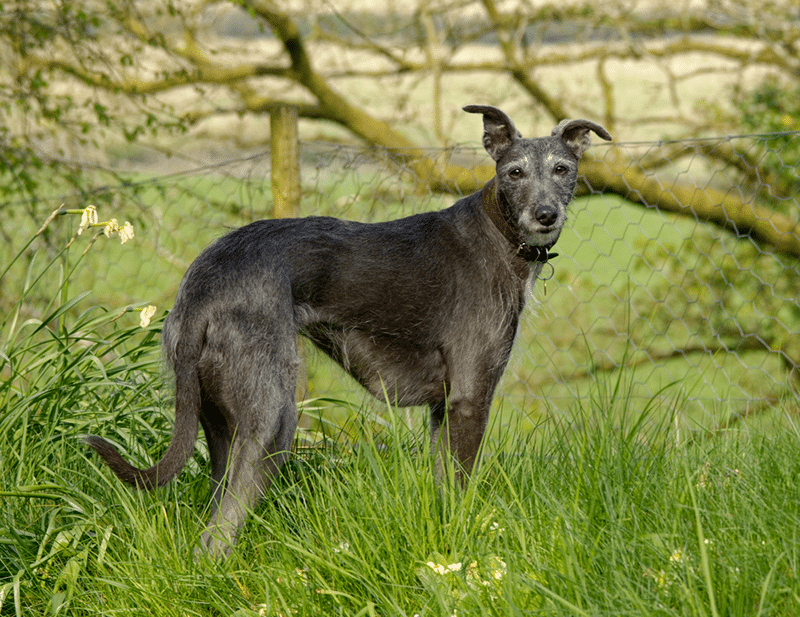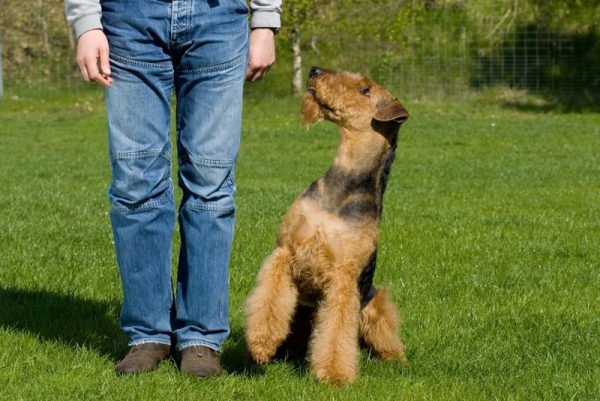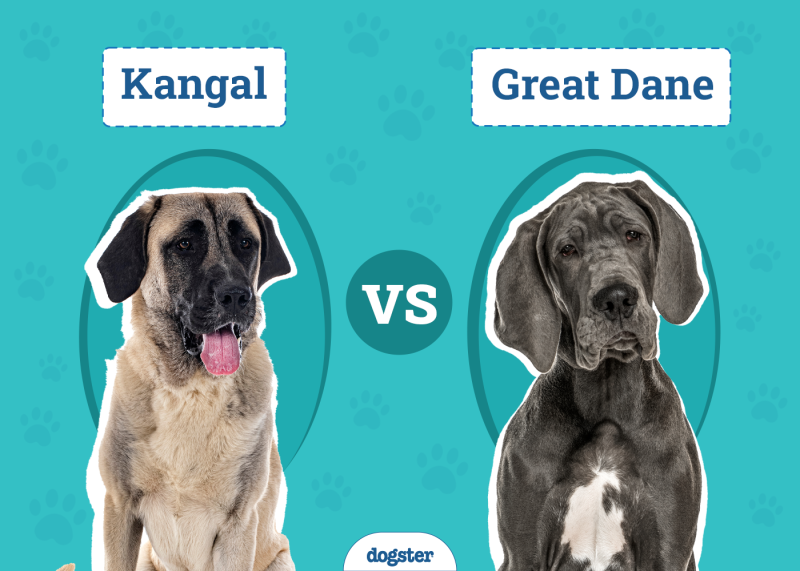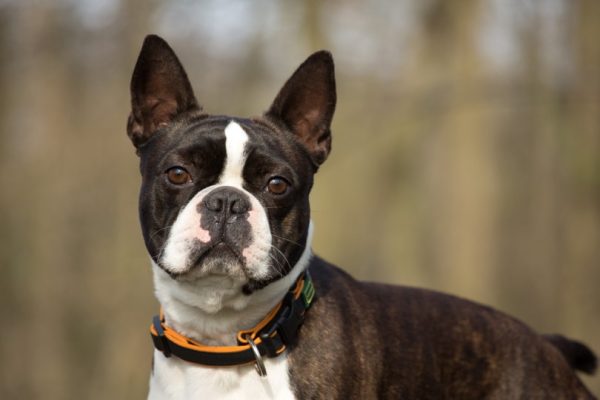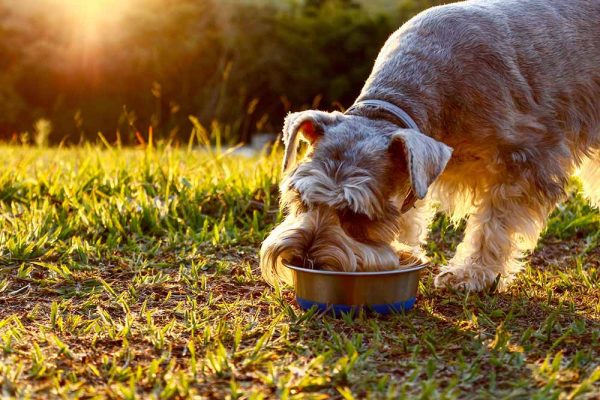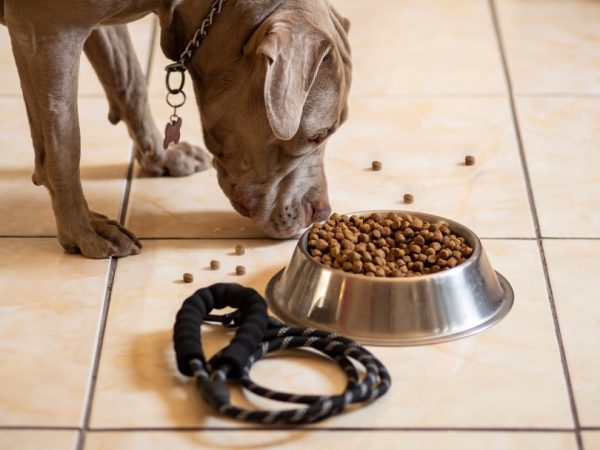In this article
View 8 More +These pups might not be a classic purebred, but they certainly have a place in the world. Let’s learn more about the Lurcher breed.
Breed Overview
Height:
12–18 inches
Weight:
50–60 pounds
Lifespan:
12–15 years
Colors:
White, blue, silver, red, brown, gray, black
Suitable for:
Active families, those looking for a low-shedding dog
Temperament:
Loyal & loving, intelligent, easy to train, friendly, gets along with other pets
This sighthound has the impeccable ability to use their eyesight to hunt prey. While sighthounds and scenthounds are different, relying on separate senses for expertise, Lurchers also use their sense of smell to help them.
If the Lurcher has caught your attention, you probably want to know all the ins and outs of this incredible, intelligent and talented breed.
Lurcher Characteristics
Lurcher Characteristics

Lurcher Puppies
Surprisingly, Lurchers are pretty rare to find. Despite their ever-growing popularity, pinpointing a puppy in your neighborhood might be a little bit difficult. You can definitely search on verifiable websites to check out breeders in your area.
Since the Lurcher is technically a combination of a Greyhound and any other sight or scenthound breed, you can get several different physical and temperament variations, so finding a puppy for you might be a little bit of an adventure. In some cases, it’ll require extensive travel on your part if you’re dead set on getting one of these fantastic creatures.
As puppies, Lurchers can be hyper and require very heavy socialization. While these puppies will generally get along with anything they’re raised with, an unsocialized Lurcher might have aloof tendencies as an adult.
It is very important to take them to dog parks, take them on walks, and expose them to various settings to create a well-rounded dog.
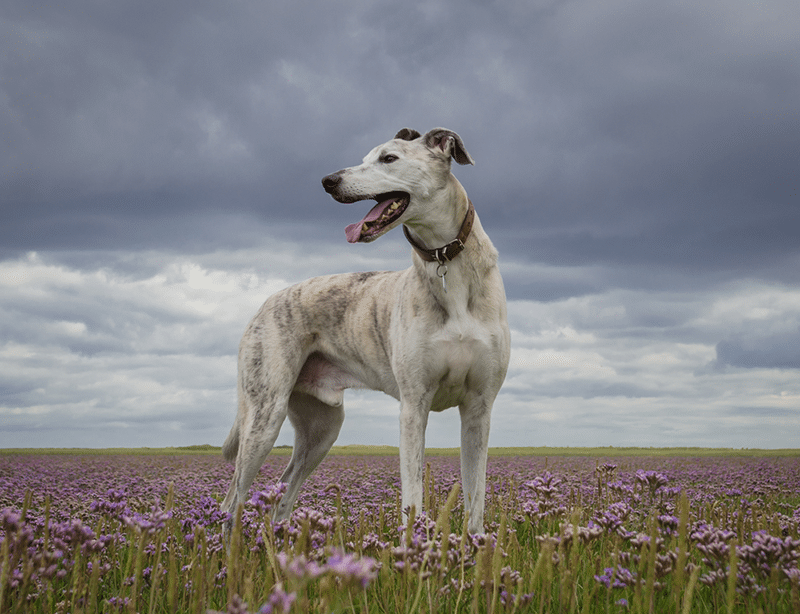

Temperament & Intelligence of the Lurcher
Lurchers are intensely intelligent and intentional dogs. Everything they do, they do with grace. They are refined and calculated in their actions. They are capable of quick thinking and swift decisions.
For this reason, they make good candidates for extensive types of training, permitting that it’s an area in which they are strong. Even though they are masters at skill sets, they make incredible pets, as they have very laid-back and affectionate personalities.
They tend to be good-natured and lackadaisical in the home but attentive and intentional in the field. Many people gravitate toward this type of dog because like their Greyhound ancestor, they can be active outside of the home. But a Lurcher is amazing when it comes to having a wonderful companion that will chill by your side.
Are These Dogs Good for Families? 👪
If you have a Lurcher from a puppy, they have time to acclimate and grow into your family. These dogs will typically integrate into any situation if everything is done as a young dog. However, Lurchers do become set in their ways.
If you get an adult dog, they might have trouble getting along with new pets and smaller children. For this reason alone, caution may be required if living with children.
If your Lurcher is well-socialized, they can blend well with various situations, including welcoming new company. However, if you don’t socialize them properly, they might not be so welcoming of new people and gravitate only toward those they are familiar with.
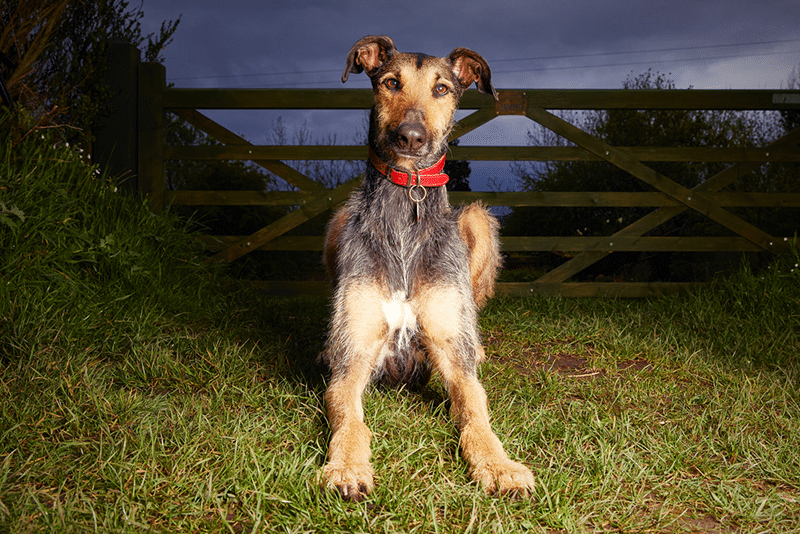
Does This Breed Get Along With Other Pets?
Lurchers require early socialization. These dogs can make absolutely tremendous companions to animals and people alike, but some can also be uncertain and even completely dismissive or territorial with other dogs. Lurchers have an incredibly high prey drive. They do not mesh well with smaller animals, including cats. Granted, if a Lurcher has been raised around a specific cat, they might get along very well with them, accepting them as part of the pack.
However, the same sentiment cannot be shared with outsiders of any kind. They might not take kindly to a cat being in the backyard that is completely unfamiliar. They might also always try to attack and kill smaller pets, including small livestock.
So, if you are getting a Lurcher in hopes that they will integrate with every pet around the barnyard or indoors, you have to closely consider the situation you’re bringing them into.
By nature, Lurchers are hunting dogs, and they are incredibly keen and aware of their instinctual desires. Putting them in a situation where they are tempted but cannot act is actually cruel, and you should reconsider the type of breed you want if you find yourself questioning.

Things to Know When Owning a Lurcher:
Food & Diet Requirements 🦴
Since the Lurcher is such a highly intense breed when it comes to exercise, they need a diet that will replenish their body. Generally, they will require a very fine protein recipe with some natural meat supplementation.
Sometimes, owners will give their dogs high-quality dry dog food and put a fresh food topper or lean, boiled meats on top of their kibble. This gives them an extra dose of protein and helps nourish their demanding bodies.
Since they deplete calories so fast, they might also require meals to be broken up throughout the day to distribute nutrients evenly. As usual, always ask your vet for feeding recommendations and guidance on how to feed your Lurcher pup appropriately.
Exercise 🐕
The Lurcher definitely requires a lot of exercise. While they can be a couch potato when they are not running around, they absolutely need that physical exertion in order to stay happy and healthy.
Like the Greyhound, the Lurcher works best in short spurts of intense physical activity. You might have an area where your Lurcher can run around or opt for a game of fetch with them. It is important for a Lurcher to be off the leash, so having an enclosed space where they can burn some energy is essential.
These dogs make good candidates for dog parks because they get along well with most other dogs and enjoy the simulation.
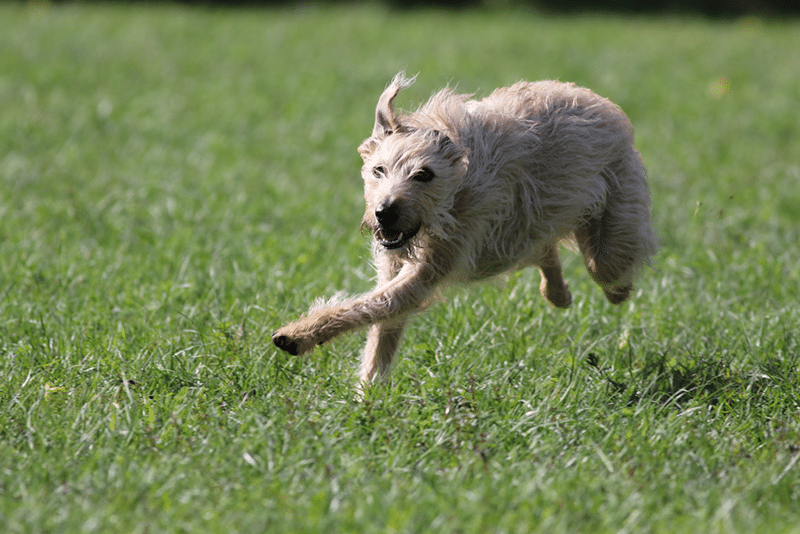
Training 🎾
Training is an absolute must with this dog, and there are no cutting corners. Your Lurcher should be very well trained. If you are not capable of performing the training yourself, it’s time to opt for professional help.
They absolutely require a firm hand and intentional direction. They do not do well with flimsy trading or unpredictable guidance. Since a Lurcher is so smart, you can expect them to catch on very quickly to concepts like potty training and basic commands.
But don’t stop there. Your Lurcher is capable of learning a variety of things that can impress you every day. Not only are they capable, but they also have the drive and desire to learn more. These highly trainable dogs can make exquisite family additions, permitting that you take the time to do this appropriately.
Grooming ✂️
Grooming a Lurcher will vary depending on the parent breeds. If they have a long, short coat like a Greyhound, it might be relatively easy to give them a couple passes of a brush and call it a day.
However, if they have hair that’s a little longer or wiry, they might require a little bit more care. Ultimately, you should have the grooming tools on hand necessary for taking care of your Lurcher’s particular coat.
Like all other dogs, you can give your Lurcher a bath every 4 to 6 weeks and try to use allergy-friendly shampoos just in case your Lurcher is sensitive in any way. It’s always best to kick out those fragrances and chemicals when we can to avoid negative reactions and keep our pups healthy.
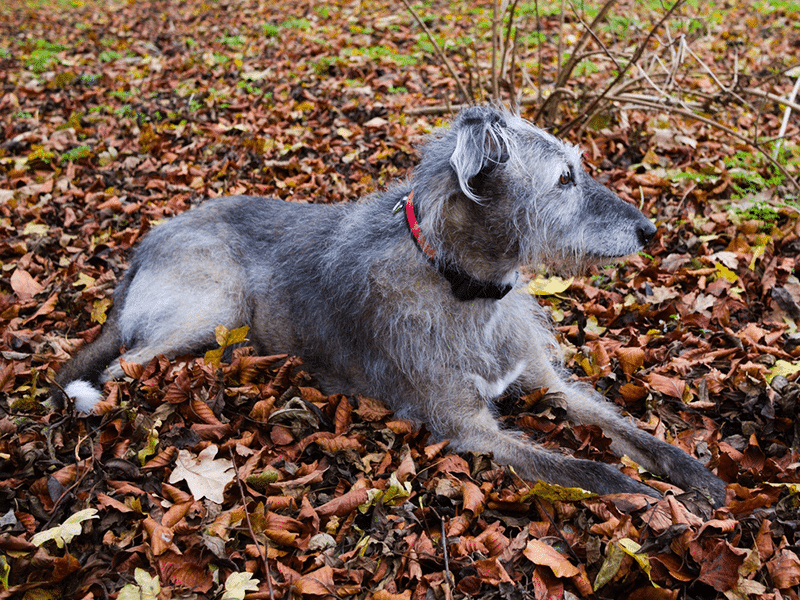
Health and Conditions 🏥
Giving your dog proper vet care is just part of the owning process. You should always count on taking your dog to the vet annually and even more often in their first year of life. As your pup grows, your vet will need to monitor their weight gain, administer routine vaccinations, schedule a spay or neuter surgery, and even microchip them.
The Lurcher is well revered for being a hardy dog with few health concerns to mention. However, as with any pet breed, there are problems that could crop up in the breed.
- Dental disease
- Gastric dilatation volvulus, or bloat
- Hip dysplasia
Male vs. Female
There are some differences between the male and female Lurcher. Physically, the males tend to be larger and heavier-boned. However, females can be bigger in certain circumstances, as this breed can have a variety of different parent breeds, which leads to size variations.
That said, you can count on dogs of the same litter to carry the normal traits of the males being taller and wider than their female counterparts.
Both sexes reach sexual maturity around 6 months of age. Most vets recommend that you get them fixed before their first heat cycle, but it might vary depending on the individual dog and any health concerns to mention.

3 Little-Known Facts About the Lurcher
1. The Lurcher is considered a “couch potato” dog.
A Lurcher is considered quite the laid-back friend.
2. The Lurcher is a very old breed.
We want to point out one important fact: The Lurcher is a very old breed, but there is no breed standard. Different breeds can play into the Lurcher, though they always have Greyhound in the mix. Other parents can be Collies and other sighthounds.
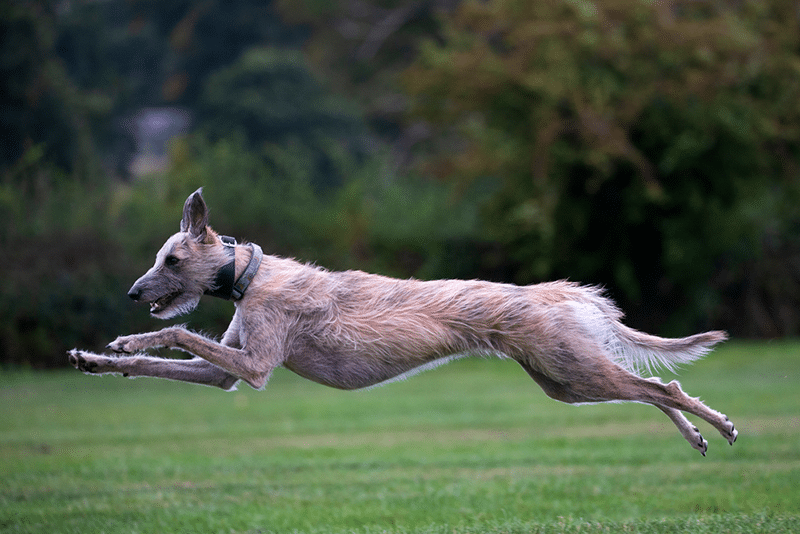
3. Lurchers are hard workers.
Lurchers definitely know how to work! They are hunting dogs that have held up their end with efficiency and precision. Mainly, Lurchers hunt coyotes, foxes, or jackrabbits.

Final Thoughts
So, now you know a little more about what the Lurcher breed is all about. If you have always been a fan of this ancient sight- and scenthound, your heart might swell with anticipation when you see this beautiful dog.
Because the influences of the parent breeds are variable, you can get all sorts of looks and personalities. Be aware that breeders in the United States are very few and far between, so do your research and make sure you pick someone reputable.
See also:
Featured Image Credit: Colin Seddon, Shutterstock
